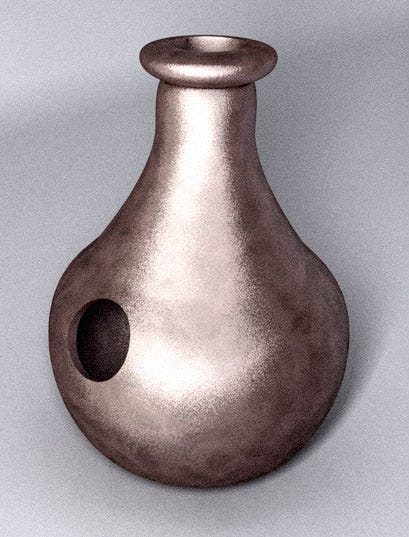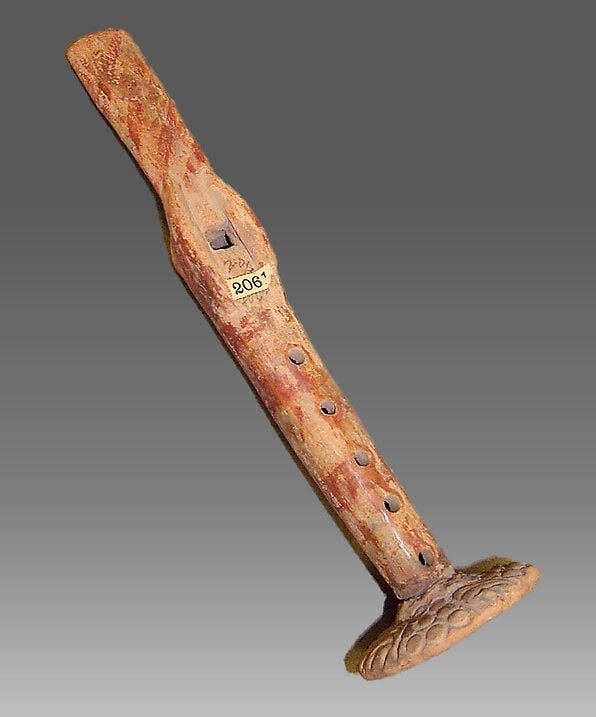Techno-Musicology: Let's begin that conversation
Field Photo. 1983. JSTOR, https://jstor.org/stable/community.34894403. Accessed 16 Feb. 2024.
A Brief statement about delays with these newsletter updates:
Anytime there's no posts, it's because I'm busy with my full time work.
When you go deep into established research fields you'll discover interconnectedness. A study of audio engineering will bring you to the field of acoustics. This in turn guides you into physics and mathematics. Through this process we learn how things work.
Over my years of research in music technology I have found myself more and more... bored. Something about it has failed to capture my attention. I realized that I had to go further in order discover something new to learn.
We are now "blessed" with access to every tool we need. A plethora of synthesis methods are now available as a wide assortment of plugins. Hard drives have become fast and large enough to contain massive sample libraries that mimic the characteristics of real-world instruments (with some limitations). During this growth I have found that the industry never stops to ask itself why and nor do many consumers.
Our recent introduction to all things AI will soon upend this even more as the purpose of presets will change. Soon it will be a matter of prompts and generative systems based off of descriptive tags. Write a brief description of the sound and the plugin will generate it. A major music technology company will normalize this within two years (I'm guessing).
In my attempt to resolve my boredom I reflected on what was missing: intentionality. Specifically, intention in our technology.
What is our intention?
Musicology is about the study of music and it's not exclusively limited to the practice and process. It includes our history and those of others. Why do we do this and what purpose does it serve us and those in our community? It also includes the philosophy of music, theory, performance, and more.
This topic has helped resolve some of my frustration and has forced me to think differently about my relationship to these technologies. Through this broader approach I ask myself new questions: What does this process mean to me? What impact do these tools have on my musical output? What is our collective relationship to these tools? However, there’s a catch to this.
There is currently very little communication between these two fields: technology and musicology. In fact the American Musicological Society barely alludes to the role of technology within their research. It's loosely described as a subset of performance: how technology is used in performance and not necessarily its relationship to anything else.
An interdisciplinary conversation needs to move forward. What is our relationship to these musical technologies and instruments? How does it impact our creative practice? I want to suggest that we reflect on this sooner than later. I believe new technological develops may usurp our better intentions. Right now, it seems to that musical results mean more to people than the process of its creation. A musicoligical perspective might allow to hear ourselves more holistically and realize there’s much more to it than we may have imagined.
Questions
Where do you see music technology going?
What does it mean for your creative process? Will it impact you?
Do you view your practice in a context outside of its musical output?
Upcoming
A festival focused on experimental music known as the MOX Sonic Festival, takes place in central Missouri in mid-March of 2024. I will demonstrate and perform work there related to this subject that I’m calling an “Ethno-musicologically informed Sound Design” (I wish I was better with titles but this will evolve over time).


I will demonstrate a process that includes an analysis of ancient African and Mesoamerican musical instruments—the udu and Aztec wind instruments respectively. This analysis includes historical context of how and why the instruments exist. The sonic qualities will be translated into different technologies to create a sound design tool and musical process. However, the goal is not to emulate. The goal is to understand first.
From there the careful construction of resonators, envelopes, and more can be used to form new instruments within the software domain. This is intended as an alternative to current music software trends that lean heavily on recreation of vintage synths or sampled instruments. Instead, what would happen if we brought music instrument concepts, derived from unique traditions, into a modern setting where we can play and manipulate them collectively?
Footnotes
https://www.amsmusicology.org/page/whatismusicology





